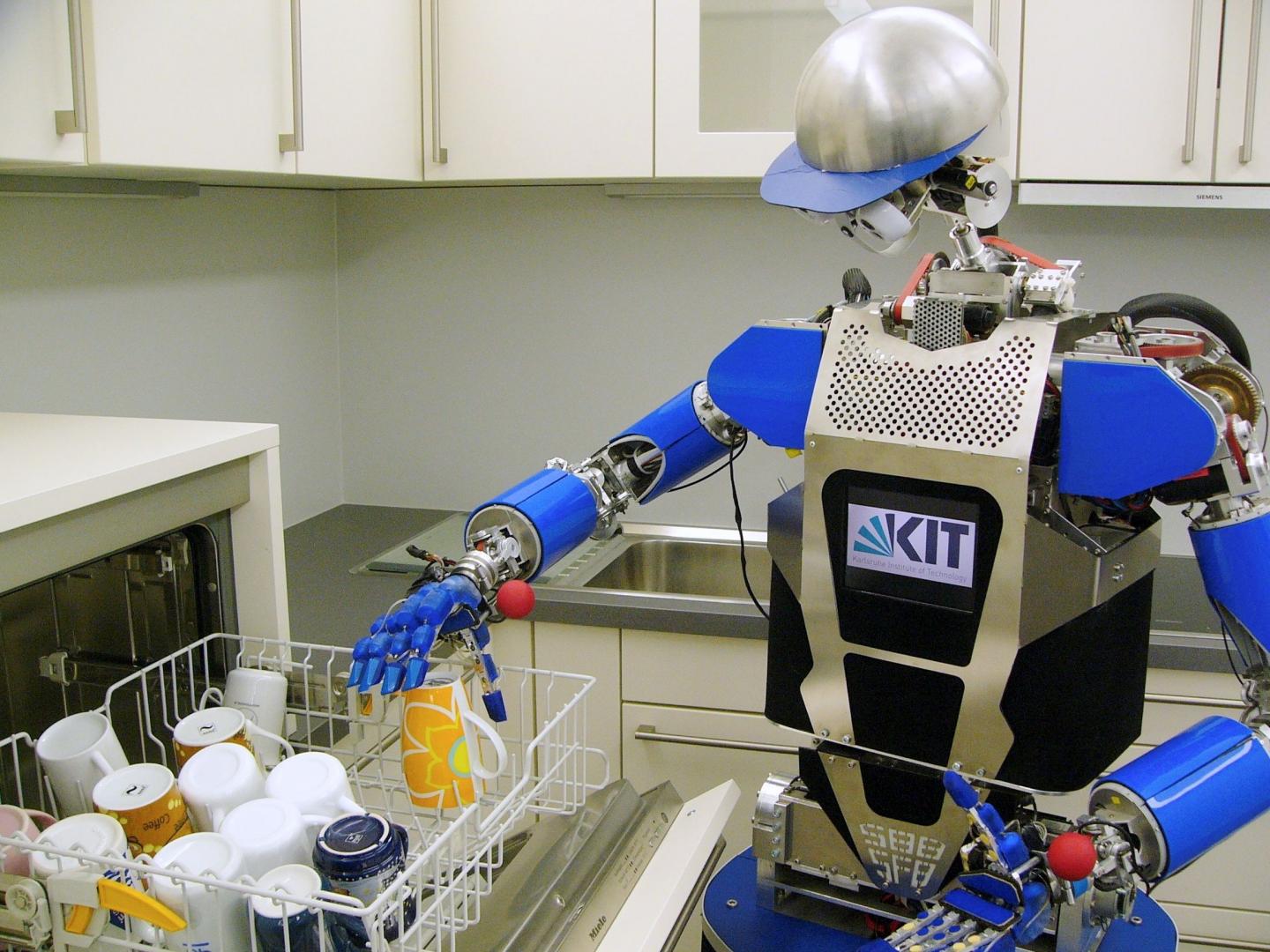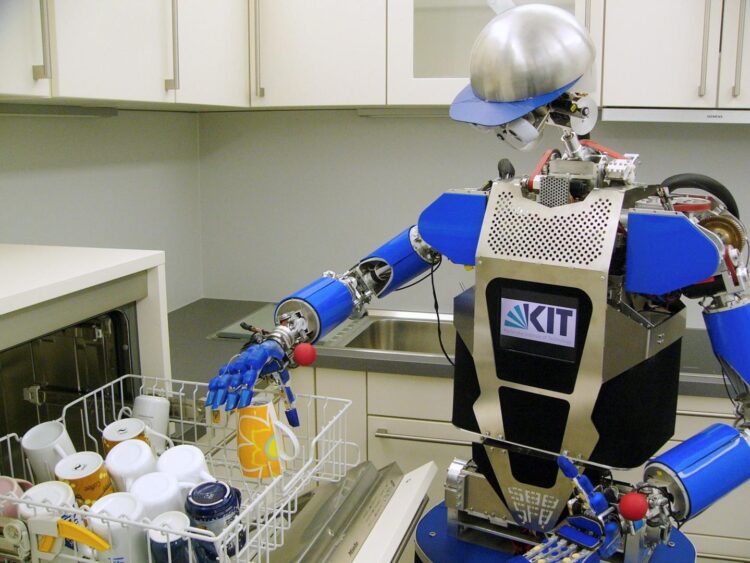KIT develops new generation of versatile and customizable humanoid robots for the elderly — Carl Zeiss Foundation funds the project with EUR 4.5 million

Credit: KIT
Staying independent and in familiar surroundings as long as possible in old age – this is the wish of the most of us. It will be made possible by humanoid assistance robots that help people cope with everyday life and wearable robots that support the movements of the wearer. Research by scientists of Karlsruhe Institute of Technology (KIT) is aimed at making such futuristic robotic solutions suited for everyday life. Research is funded by the Carl Zeiss Foundation with EUR 4.5 million.
Within the framework of the project “JuBot – Young at heart with robots: Versatile assistance robotics for managing everyday life,” researchers will develop a new generation of the known humanoid ARMAR robots. These helpers are supposed to take over everyday tasks in the household, such as bringing objects, laying and clearing the table, putting objects into the dishwasher, and communicating via various channels with the relatives of the persons they care for. Secondly, researchers will study and develop wearable robots – also called exoskeletons – that do not only support personal mobility of elderly people, but also enable specific training of motor and cognitive skills.
Robotics to Counteract Demographic Change
“As an aging society it is one of our most urgent challenges to ensure a self-determined life and a high quality of life for our fellow citizens,” says Professor Holger Hanselka, President of KIT. “At the same time, we have to reduce the workload of nursing staff and to counteract the shortage of skilled staff in the care sector. Assistance robotics and AI-based technologies studied by KIT may represent a solution.”
“Human-centered robotics is an important subject for the future dealt with by KIT. However, it is not sufficient to make available the technologies. When using assistance robots in common human-robot living spaces, we also have to consider protection of privacy, structural demands, and impacts on society,” says Professor Oliver Kraft, KIT Vice-President for Research. “For this reason, KIT experts in robotics, artificial intelligence, human-machine interfaces, IT security, engineering, sports sciences, architecture, and technology assessment are jointly working on this project.”
Robots Learn from Humans
“Through interaction with humans, the JuBot robots will learn continuously and adapt to their individual needs and habits,” says Professor Tamim Asfour of KIT’s Institute for Anthropomatics and Robotics and coordinator of the JuBot project. The KIT-developed ARMAR robots can already carry out complex tasks in a kitchen environment. They learn from and interact with humans with the help of natural language. “We pursue a human-centered approach to address central aspects of assistance robotics, such as versatility and customization of the systems, and their tests in real everyday surroundings,” Asfour explains. To reach this goal, the robots will first be trained in a human-robot apartment at KIT and tested later on at a retirement home in Karlsruhe. “With the JuBot team, we do not only want to push research into intelligence assistance robotics, but also wish to contribute to a breakthrough in supporting a self-determined life of elderly people.”
###
In the program line of “Breakthroughs”, the Carl Zeiss Foundation funds six interdisciplinary research projects in 2020. Research covers smart solutions for an aging society. The JuBot project of KIT is funded with EUR 4.5 million by the Foundation.
About the Carl Zeiss Foundation
It is the goal of the Carl Zeiss Foundation to create an open environment for scientific breakthroughs. As a partner of excellence in science, it supports basic research as well as applied research and teaching in the STEM subject areas (mathematics, informatics, natural sciences, and engineering). Founded in 1889 by physicist and mathematician Ernst Abbe, the Carl Zeiss Foundation is one of the oldest and biggest private science funding institutions in Germany. It is the sole owner of Carl Zeiss AG and SCHOTT AG. Funding activities are funded through dividends paid by the two foundation companies.
More about the KIT Information · Systems · Technologies Center: http://www.
Press contact:
Dr. Felix Mescoli, Press Officer, Phone: +49 721 608-41171, Email: [email protected]
Being “The Research University in the Helmholtz Association”, KIT creates and imparts knowledge for the society and the environment. It is the objective to make significant contributions to the global challenges in the fields of energy, mobility, and information. For this, about 9,300 employees cooperate in a broad range of disciplines in natural sciences, engineering sciences, economics, and the humanities and social sciences. KIT prepares its 24,400 students for responsible tasks in society, industry, and science by offering research-based study programs. Innovation efforts at KIT build a bridge between important scientific findings and their application for the benefit of society, economic prosperity, and the preservation of our natural basis of life. KIT is one of the German universities of excellence.
This press release is available on the internet at http://www.
Media Contact
Monika Landgraf
[email protected]
Original Source
https:/





